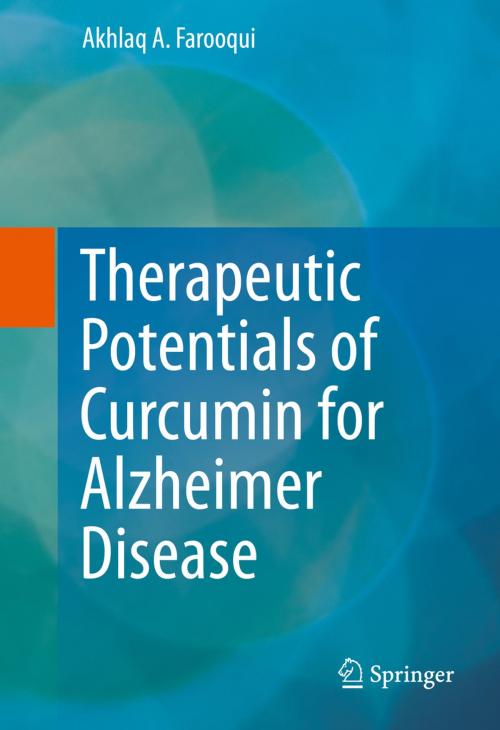Therapeutic Potentials of Curcumin for Alzheimer Disease
Nonfiction, Science & Nature, Technology, Food Industry & Science, Health & Well Being, Medical, Specialties, Internal Medicine, Neuroscience| Author: | Akhlaq A Farooqui | ISBN: | 9783319158891 |
| Publisher: | Springer International Publishing | Publication: | March 5, 2016 |
| Imprint: | Springer | Language: | English |
| Author: | Akhlaq A Farooqui |
| ISBN: | 9783319158891 |
| Publisher: | Springer International Publishing |
| Publication: | March 5, 2016 |
| Imprint: | Springer |
| Language: | English |
This is the first book on the market that explores the importance of curcumin for the treatment of neurological disorders. It has been estimated that 35.6 million people globally had dementia in 2010 and the prevalence of dementia has been predicted to double every 20 years. Thus, 115.4 million people may be living with dementia in 2050. Alzheimer’s disease (AD) is the leading cause of dementia and is present in 60%–70% of people with dementia. Unless new discoveries are made in the prevention or treatment of AD, the number of cases in the US alone is estimated to increase threefold, to 13.2 million by the year 2050. Thus, it is important to focus on delaying and treating the onset of AD by curcumin may be an important step for controlling AD. Regular consumption of healthy diet containing curcumin enriched foods, moderate exercise, and regular sleep may produce beneficial effects not only on motor and cognitive functions, but also on memory deficits that occur to some extent during normal aging and to a large extent in AD. Delaying the onset and progression of AD and improving its symptoms by few years with regular consumption of curcumin may relieve some of the burden on health care systems. In service of this goal, this volume gives readers a comprehensive and cutting edge description of the importance of curcumin for the treatment of AD in cell culture and animal models in a manner that is useful not only to students and teachers but also to researchers, dietitians, nutritionists and physicians. It can be used as supplement text for a range of neuroscience and nutrition courses. Clinicians, neuroscientists, neurologists and pharmacologists will find this book useful for understanding molecular aspects of AD treatment by curcumin.
This is the first book on the market that explores the importance of curcumin for the treatment of neurological disorders. It has been estimated that 35.6 million people globally had dementia in 2010 and the prevalence of dementia has been predicted to double every 20 years. Thus, 115.4 million people may be living with dementia in 2050. Alzheimer’s disease (AD) is the leading cause of dementia and is present in 60%–70% of people with dementia. Unless new discoveries are made in the prevention or treatment of AD, the number of cases in the US alone is estimated to increase threefold, to 13.2 million by the year 2050. Thus, it is important to focus on delaying and treating the onset of AD by curcumin may be an important step for controlling AD. Regular consumption of healthy diet containing curcumin enriched foods, moderate exercise, and regular sleep may produce beneficial effects not only on motor and cognitive functions, but also on memory deficits that occur to some extent during normal aging and to a large extent in AD. Delaying the onset and progression of AD and improving its symptoms by few years with regular consumption of curcumin may relieve some of the burden on health care systems. In service of this goal, this volume gives readers a comprehensive and cutting edge description of the importance of curcumin for the treatment of AD in cell culture and animal models in a manner that is useful not only to students and teachers but also to researchers, dietitians, nutritionists and physicians. It can be used as supplement text for a range of neuroscience and nutrition courses. Clinicians, neuroscientists, neurologists and pharmacologists will find this book useful for understanding molecular aspects of AD treatment by curcumin.















